The strict confinements due to the zero covid policy have dealt a severe blow to the economy China and the effects have become increasingly evident.
Youth unemployment hit a record 20%, corporate profits have dipped and the manufacturing sector contracted again in November.
Look: Xi told EU leader protests in China show “frustration” after three years of coronavirus pandemic
For a country used to having annual growth rates close to 9% in recent decades, things are getting complicated.
International forecasts estimate that economic growth for this year will not exceed 3%, well below government expectations.
If things continue like this, the Chinese economy would experience its slowest expansion in more than four decades, discounting the 2020 crisis amid the pandemic.
Although this Thursday the Chinese government announced that it will reduce some of the restrictions imposed on people’s mobility to contain the covid-19 pandemic, it is not yet clear what the new measures will be, at a time when infections caused by the omicron variant in a population that has not been massively vaccinated.
Fed up with the confinement, in recent days hundreds of people staged Unpublished protests triggered after a fire who killed 10 people locked in a high-rise residential building.
The protesters attributed the deaths to the fact that the doors of the building were blocked to avoid contagion, something that the authorities deny.
“We don’t want covid tests, we want freedom”shouted a group of young people in the streets of Shanghai during demonstrations that also included shouts against the Xi Jinping government, something unprecedented in the Asian giant.
While the restrictions on free movement have dampened consumer confidence -even unleashing the ire of those who are subjected to long confinements-, the government faces the dilemma of changing the health approach to stimulate the economy, risking infections spreading of control.
“Tremendous damage to the economy”
“The zero covid is causing tremendous damage to the Chinese economy,” Nancy Qian, professor of Economics at the Kellogg School of Management at Northwestern University, United States, tells BBC Mundo.
The blockades have caused gigantic disruptions in product supply chains worldwide. And inside the country, the effects have been very harsh on the population.
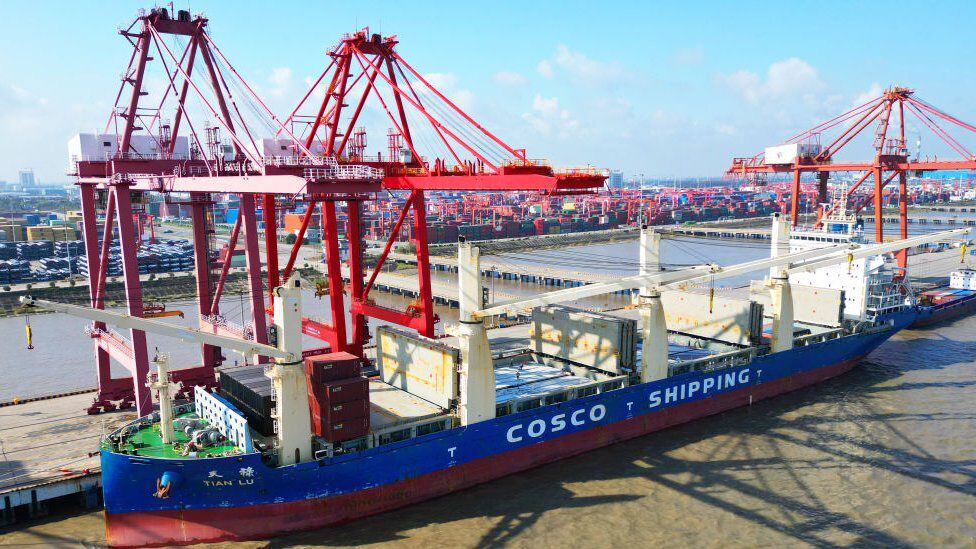
During the lockdown in Shanghai, Qian notes, food shipments brought into the city for residents in lockdown “rotted in the streets as citizens starved.”
The large-scale closures of a month in a city like Beijing or Shanghai, explains the researcher, reduce economic growth by at least 4%.
“If you add up all the crashes that have happened, you know the negative impact is huge.”.
Any weakening of the second largest economy in the world has global ramifications, even more so when organizations such as the International Monetary Fund, IMF, estimate that around a third of countries will fall into recession in 2023.
How the iPhone became a symbol of despair
Investors and markets are concerned about the increase in infections, considering that China has not had a mass vaccination campaign, something that further increases the levels of uncertainty about the economic future.
On the other hand, “people within the country are spending less money on things like cars and smartphones,” another sign of the impact the zero-Covid policy has had, says Suranjana Tewari, the BBC’s Asia economic correspondent.
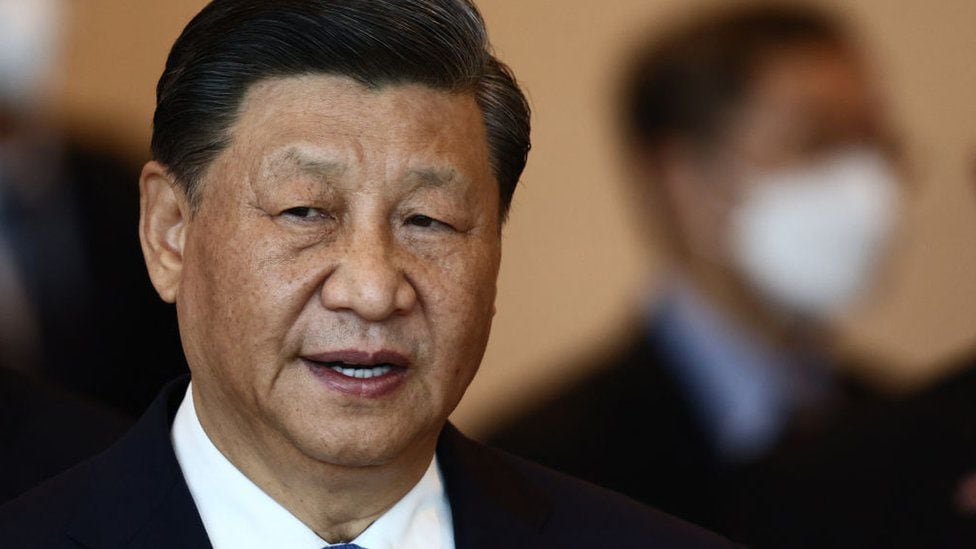
Against the backdrop, he adds, is the fact that “China is facing a number of challenges including the housing crisis, crackdowns on technology companies and the effects of lower demand as a result of the global slowdown.”
Multinational companies like Apple are seeing the effects of the zero covid policy on their production lines.
The recent closure of a Chinese plant that assembles iPhones has caused trouble for the tech giant. The factory, which employs 200,000 people and is owned by Foxconn, a Taiwanese company, suffered an outbreak in October that forced a partial closure.
When food became scarce, many employees went on the run, jumping over walls and walking down highways in an attempt to get home. A desperate situation that has had an impact on the manufacture of a product for mass consumption in the world.
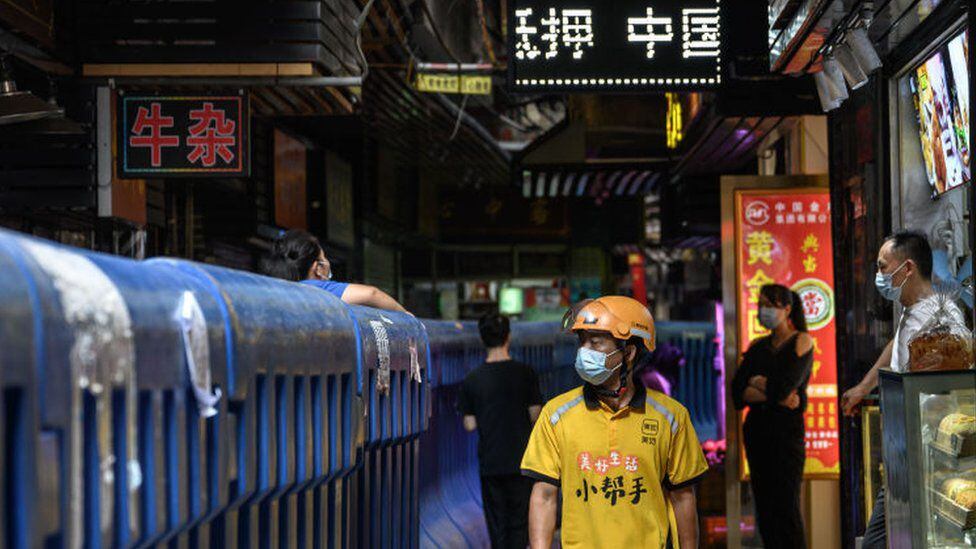
Although the severity of the lockdowns could change in the coming weeks, as of this week the lockdowns were still in effect in cities that account for about a quarter of China’s Gross Domestic Product, or GDP, according to an index compiled by Nomura, an investment bank. Japanese investment.
“It may get worse before it gets better”
The zero-covid policy has been a major drag on the Chinese economy in recent months, argues Mark Williams, chief Asia economist at consultancy Capital Economics.
It has forced cities to implement lockdowns and hhas made everyone wary of going out for fear of being quarantinedhe tells BBC Mundo, leaving more than two million people in quarantine facilities.
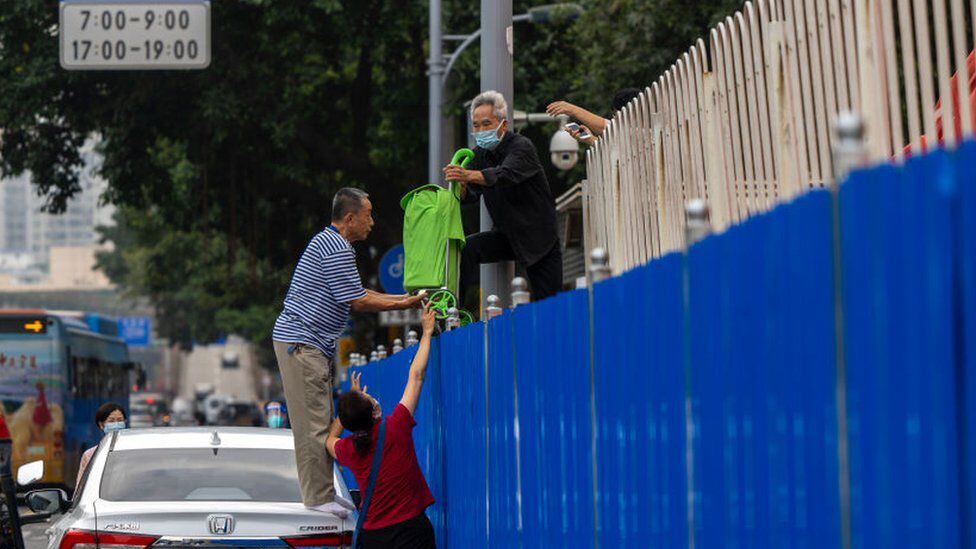
“It is possible that it will get worse before it gets better,” he says, since “the authorities will not want to relax the covid zero policy until the vulnerable are well vaccinated, and that will take months.”
The reopening of a country takes time. Even if the country decided to end the zero covid policy now, the positive economic effects would likely start to be felt around 2024, some analysts say.
But it all depends on the reopening plan defined by the Chinese authorities and the speed with which they implement it.
“There will certainly be an opening”
Some economists are confident that sooner rather than later there will be a change in policy.
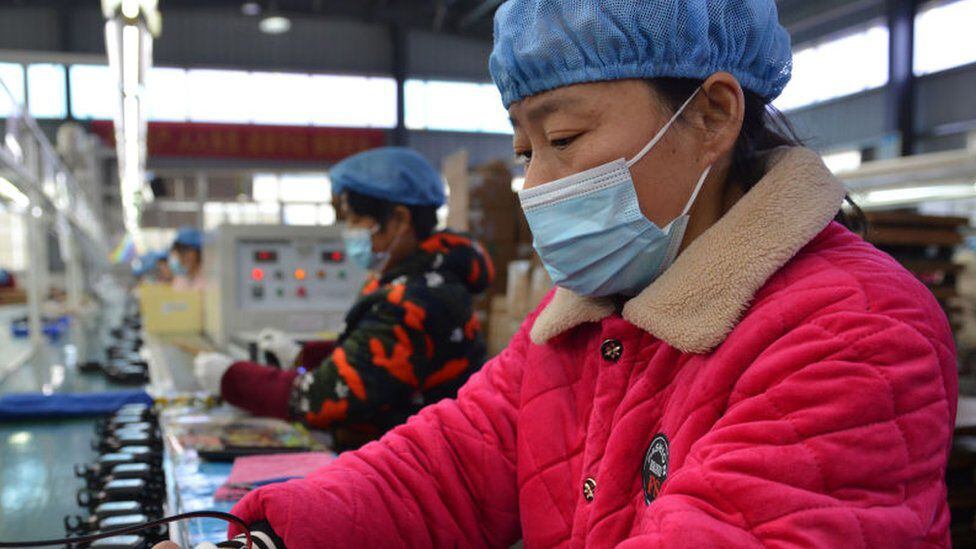
“The opening will be slow, probably with some turning back, but without a doubt there will be an opening,” Alicia García-Herrero, chief economist for Asia-Pacific at the Natixis investment bank, told BBC Mundo.
“China is trying to move the zero-covid policy to the Hong Kong model, in the sense of making lockdowns very fast,” he adds, although “clearly investment and consumption are not going to come back quickly because people are very worried.”
Although the reopening is a long and difficult process, in any case, says García-Herrero, “the economy will be better next year.”
Source: Elcomercio
I am Jack Morton and I work in 24 News Recorder. I mostly cover world news and I have also authored 24 news recorder. I find this work highly interesting and it allows me to keep up with current events happening around the world.

:quality(75)/cloudfront-us-east-1.images.arcpublishing.com/elcomercio/GE4TCMZNGEZC2MBSKQYDAORRHE.jpg)

:quality(75)/cloudfront-us-east-1.images.arcpublishing.com/elcomercio/Y5NNYXRIQBGSRM2WPQUKA7ZLFM.jpg)
:quality(75)/cloudfront-us-east-1.images.arcpublishing.com/elcomercio/7URAPFTLDBHF5IUGOQBXDAPBGE.jpg)
:quality(75)/cloudfront-us-east-1.images.arcpublishing.com/elcomercio/TGSWXFBH5ZAPPOFSSWRE5TKOPY.jpg)
:quality(75)/cloudfront-us-east-1.images.arcpublishing.com/elcomercio/BAGOKPJAORGA7BKM5SOV4F2ELM.png)
